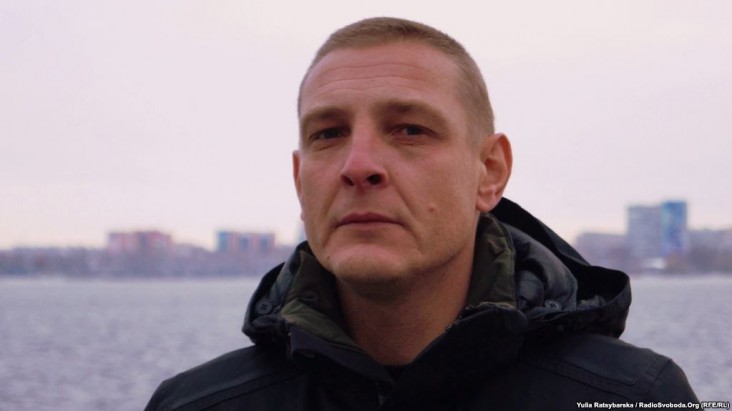Speeches Shim

Oleksandr Bondarenko was injured at a checkpoint entering into a part of Donetsk controlled by Russia-backed forces. It took him two years to prove that his injury was associated with the ongoing armed conflict in eastern Ukraine before he obtained the appropriate government support payments.
His bewildering journey began in May 2014, when the Donbas conflict started. Oleksandr was astonished that former classmates and friends had taken up arms against Ukraine as separatists.
“I couldn't believe that something like that could happen in our region. I didn’t believe that they all could be against Ukraine,” said Oleksandr Bondarenko in an interview to Radio Svoboda.
Oleksandr, a father of four, had moved from the Donetsk region in which he grew up to Dnipro, where he had now lived with his family for many years. He decided to return to his birthplace in his car to see firsthand what was happening and provide support to those defending his home town. So he loaded his vehicle with several pairs of combat boots, several sets of military uniforms, and canned food, which he hoped to deliver to Ukrainian soldiers. Along the way he came across an enemy checkpoint where his car was searched. When his phone rang and started playing Ukraine’s national anthem as its ringtone, the armed militants opened fire.
“The car was still running, so I dashed inside and drove away; they were shooting at me, then started chasing me. Gunshots shattered my rear window and I realized that I was wounded in the stomach,” recalls Oleksandr.
Oleksandr managed to survive and went through several surgeries. He received limited disability status, but the fact that his disability was a result of the armed conflict was never recorded in his medical records, which referred to his wounds as “illness of a general nature.”
At the time no legal mechanism existed to provide assistance to civilians wounded through hostilities in Donbas, which left Oleksandr no recourse. But in 2018, legislation was passed. Hearing about the new development, Oleksandr quickly consulted lawyers from USAID’s Human Rights in Action program at their legal aid center in Dnipro, which operates through the SICH Human Rights Group. The USAID-supported legal aid centers that operate in eastern Ukraine offer free consultations and advice to all people in need.
With their help, Oleksandr started gathering the proof he needed to link his injury to the armed conflict in eastern Ukraine.
With assistance from the USAID program, Oleksandr presented his case to the Ministry for Veterans’ Affairs (MVA), which ultimately agreed that he had sustained his injury as a direct result of hostilities in the east. He obtained a certificate noting his disability status and its cause, and access to full government compensation, including access to military hospitals for future treatment.
For 2020, Oleksandr is still the only civilian from Dnipropetrovsk Oblast to successfully prove his case to the MVA commission. Overall, Ukraine has had only a few dozen such successful cases, while according to the United Nations, between 7,000 and 9,000 civilians have received injuries over the six years of the armed conflict in Donbas.
USAID’s Human Rights in Action Program has developed an infographic detailing the path that others inadvertently injured as a result of the conflict in eastern Ukraine should follow to obtain disability status for their war-related injuries.
USAID’s Human Rights in Action program runs through September 2022. The program is designed to empower human rights activists and respond to human rights violations through monitoring and advocacy; support for selected court cases; public outreach- and citizen empowerment; and legal assistance to conflict-affected and displaced people.

Comment
Make a general inquiry or suggest an improvement.